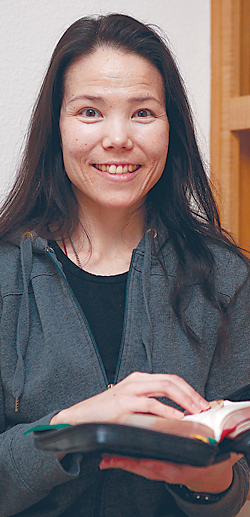 I always keep on my desk a leaflet from the Apostleship of Prayer, containing the Pope’s intentions for each month. It just dawned on me that this would be a most helpful thing to post at the beginning of each month.
I always keep on my desk a leaflet from the Apostleship of Prayer, containing the Pope’s intentions for each month. It just dawned on me that this would be a most helpful thing to post at the beginning of each month.
It’s good to recall that all vocations come through the Church. They’re not about “doing our own thing.” Uniting ours prayers with those of the Holy Father and the universal Church is an excellent way to open ourselves to God’s personal call in our lives.
Before giving the Pope’s intentions for March (I’m almost a week late, so another few minutes won’t hurt anybody), I’d like to recommend two privileged times for remembering the Pope’s intentions:
First, there’s the Morning Offering, which is a great way to commit our day to the Lord:
O Jesus, through the Immaculate Heart of Mary, I offer You my prayers, works, joys, and sufferings of this day, in union with the holy sacrifice of the Mass throughout the world. I offer them for all the intentions of Your Sacred Heart: the salvation of souls, reparation for sin, and the reunion of all Christians. I offer them for the intentions of our bishops and for all the intentions recommended by our Holy Father this month. Amen.
Second, there’s the family Rosary. At the beginning or end of the Rosary, to gain the indulgence for praying the Rosary–and again to manifest the unity of our prayer with that of the universal Church–it’s customary to pray an Our Father, Hail Mary, and Glory Be for the Pope’s intentions.
But what are the Pope’s intentions this month? Here they are:
Latin American Nations. That the nations of Latin America may walk in fidelity to the Gospel and progress in justice and peace.
Persecuted Christians. That the Holy Spirit may give light and strength to those in many regions of the world who are persecuted and discriminated against because of the Gospel.
I will post his intentions for subsequent months at the beginning of each month. In the meantime, check out the website of the Apostleship of Prayer for more information on this pious practice.
Like this:
Like Loading...
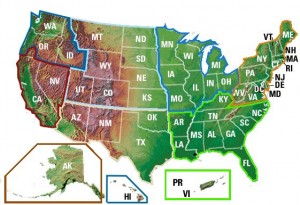 One of the top ten vocation websites for 2011 as identified by the United States Conference of Catholic Bishops (USCCB) is the site of the National Conference of Diocesan Vocation Directors.
One of the top ten vocation websites for 2011 as identified by the United States Conference of Catholic Bishops (USCCB) is the site of the National Conference of Diocesan Vocation Directors.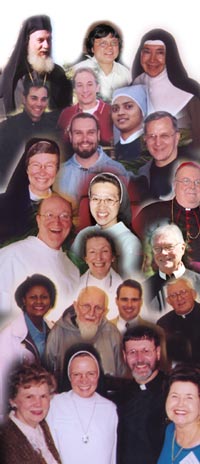 The
The 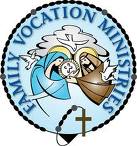 This past weekend I took the time to explore the website of
This past weekend I took the time to explore the website of  I came across a couple interesting vocation-related articles on the Internet this past weekend.
I came across a couple interesting vocation-related articles on the Internet this past weekend.

 I always keep on my desk a leaflet from the
I always keep on my desk a leaflet from the 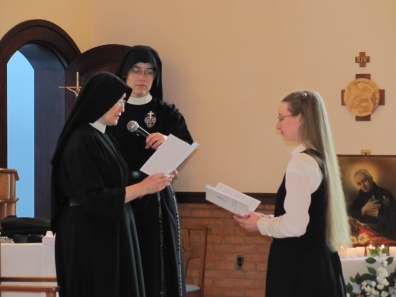 Yesterday we received a letter from our delightful daughter, Sr. Mary Kate. This one was special as it’s the last letter we will receive from her until after Easter.
Yesterday we received a letter from our delightful daughter, Sr. Mary Kate. This one was special as it’s the last letter we will receive from her until after Easter.
